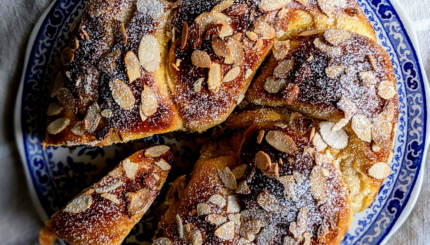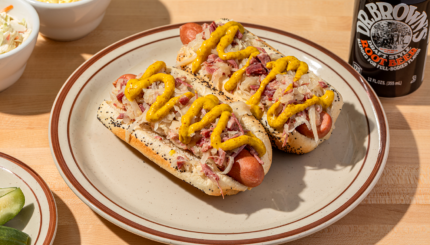She took his head between her palms, bent down and planted a little kiss on the top of his head. In heavily accented Hebrew, the clerk explained that he would have to find something else because she wouldn’t want the supermarket to sell him a breakfast item that did not have the expiration date stamped on the carton. Who knows, it might be old and spoiled.
It was probably the first time in his life that my ten-year-old grandson had gotten a kiss from an Arab. I was touched and a bit amused. I was also horrified – what would his mother say?
It had taken her a long time, but my daughter-in-law finally allowed me to take him on a trip to the North for a few days, just me and him, my oldest grandchild. It was hard for her, not least because I am known as a so-called “Arab lover” and she is deathly afraid of them. What would she say when she heard that – while in my custody and under my watchful gaze – her oldest son had been inadvertently taken into an Arab supermarket chain and had received a kiss from a hijab-clad clerk? Would she think I was being derelict in my responsibility? Was I?
That was a week ago. What did my dear grandson think of the whole incident? Has his mother’s fear and revulsion of Arabs been passed down to him? I didn’t ask and I don’t know. And did he tell her? I don’t know. Perhaps I should tell her? Perhaps I shouldn’t.
These things always seem to happen to me.
The previous night we had a barbecue on the shore of the Sea of Galilee, just the two of us. There were a lot of people there. He wanted to look for a spot that was more secluded. I wondered if it was the presence of so many Arabs that made him uncomfortable. I knew for a fact that “they” would absolutely make his mother uncomfortable. I knew about myself that “they” used to make me uncomfortable. Today I experience things differently. She doesn’t. And what about him; is this an indication that her fear has been implanted in his young heart?
We found an isolated spot and prepared our meal. The two of us ate and talked. It was fun. As the darkness was approaching, I began to spill out the still-burning coals in order to extinguish them. I heard an Arabic-accented voice behind me in the distance, yelling in distress in Hebrew, ‘no, no, no’ but I did not pay any attention. When I finally understood that her pleas were directed at me, it was too late. She was standing beside me with her empty barbecue in her hand, looking sadly at the coals.
I could have just said sorry and went my way. But I was kind of fascinated by this scenario in which I was standing so close to this colorfully dressed Muslim woman in need, and looking at her plaintive eyes – as I said, I am an “Arab lover” – so I took my spatula in hand and begin to pick up the coals and place them one by one in her barbecue. She tried to signal to me to stop – she would do it herself – but I politely refused to let her do it alone. We picked up the coals together … in silence, for I speak no Arabic and she spoke no Hebrew.
Shown an earlier version of this blog, one of my editor friends wrote that she cringed at reading about this semi-fascination of mine. She gently pointed out that I make myself appear like one of those white liberals fascinated by non-white cultures, bending over backward to show them acceptance and in doing so putting their prejudice on display for all to see. Indeed I think that could be part of it. I do have that tendency, and it is my work, my teshuvah to correct it. She made me aware of a blind spot of mine. It is so good to have friends who can help us along in this life-long journey of growing and becoming better at being human.
The Muslim woman’s husband – a man my age and at least 20 years her senior – came over to see what was going on. We shook hands. He told me that I did not have to help, she could do it herself. Again I politely refused, and he was left to watch from the sidelines, slightly bemused and slightly intrigued.
With my hot coals and her fresh ones, she got a beautiful fire going in no time. I was happy to see her smile of satisfaction. In the meantime, her husband and I got to know each other. I asked him a lot of questions. They married after his first wife passed away. She is from Qalqilya, in the West Bank, (under Palestinian rule). That is why she could not speak Hebrew. He is from Nazareth, which is within the Green Line and has worked with Israeli Jews much of his life. He has four grown kids from the first marriage, just about the ages of my kids. And three kids from the second marriage, just about the ages of some of my grandchildren. I introduced myself to the kids, asking permission before I shook the little girl’s hand.
The kids did not know a word of Hebrew. My grandson learns Arabic in school once a week. It did not help. The kids sat and looked at each other as the man and I talked, while his wife prepared the food.
He invited us to dinner with them, explaining that they were celebrating the Muslim holiday of Eid Al Adha and would be honored to have us as their guests. I responded that we’d love to join them, but had already finished dinner and that in any case we only eat kosher.
I told him that I used to be afraid of Arabs and explained a bit about how Roots – a local Israeli-Palestinian initiative for understanding, nonviolence, and transformation – has helped me to overcome much of my fear. Indeed fear – my daughter-in law’s – had been gradually making its way to the forefront of my consciousness.
I really wanted to stay and talk more. I also really wanted to leave as quickly as possible. I wanted to get to know them better and I wanted my grandson to feel comfortable with them, to see that they are people just like us, nice people, good people. But I was so afraid that he would go home and tell his mother that we had sat down for dinner with Arabs and that I would never be allowed to take him anywhere for as long as I live.
Postscript:
Writing, and thinking about what one has written, is in general, therapeutic.
It took a while and much hesitation, but I finally came to the realization – firmly nudged along by some of my friends – that I needed to have an honest conversation with my daughter-in-law about my adventures with my grandson. Not only because I cannot publish a piece like this in which she plays such a central role without her knowledge, but also because it will not do any good for our relationship to leave her in the dark concerning these events, and the thoughts and feelings that they aroused.
She and I had a wonderful, open conversation that I believe taught us a lot about each other and brought the two of us a little bit closer together. She shared with me some of the childhood events that gave rise to her fears, her awareness of their corrosive nature, and her struggles to overcome them. She told me how it pained her to see how her fears are being passed on to her children. She also described her great ambivalence concerning the things that I told her. I even heard her express the hope that one day she might reach the point at which she could benefit from the people-to-people bridge-building work that we do at Roots. And she told me how deeply touched she was by the story of her son getting a kiss on the forehand from a woman that she would have otherwise seen as threatening. “That kiss might be therapeutic for me,” she said.
I basically just listened … and am the better for it.
Thank you to the writing process and thank you to my editor friends and to my readers who make the process possible!
Discover More
Almond Croissant Breakfast Challah Recipe
With swirls of citrus-infused butter and homemade marzipan.
Can Chicago Save the Jewish Deli from Extinction?
The Windy City’s enjoying a Jewish deli renaissance.



